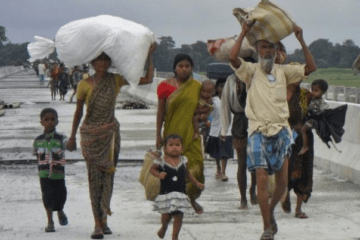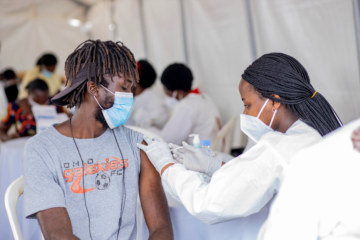
This article is written by Monalisha Jana of 2nd Semester of Adamas University, School of law and justice
ABSTRACT –
The present study experimentally investigated about The Infringement Of International Law, Political Climate And Its Impact On Muslim Women. Here I discussed about international law and a short definition and its significance. How international law play a crucial role. The categories of violation because of infringement of international law and political climate. And also the importance of upholding and enforcing international legal norms to prevent and address such abuses. And at the end Some of the case study where human right is violated specially for Muslim women.
KEYWORDS: –
international law, infringement of international law, political climate, violation of human right.
INTRODUCTION
To understand the infringement of international law, political climate and its impact on Muslim women, firstly we need to know what is international law. International law is a set of rules and guidelines that apply between states and other entities and bind states to each other. International law deals with states as legal and political entities without regard to the size and power of states. It applies equally to all States. International law establishes normative guidelines and a common conceptual framework for states across a broad range of domains, including war and diplomacy, human rights, economic relations. Any internationally wrongful act violates international law. To maintain world order international law plays a crucial role. It ensures the protection of human right. Infringement of international law refers to actions or policies that violate established norms and principles of international law, such as human rights violations, discrimination, or lack of women’s rights. These infringements can involve both state and non-state actors.
Political climate analyzes the political atmosphere and its influence on Muslim women. Examine the policies, laws, or attitudes adopted by governments or influential political actors that directly or indirectly affect Muslim women’s rights, freedoms.
OBJECTIVE: –
The current work is about the international law and its significance, how infringement of international law violates the right human. Some case studies which affected Muslim women.
- Definition and significance of international law
International law is a system of rules and principles that govern the conduct of states and international organizations in their interactions with one another. It is a framework that provides guidelines for resolving disputes, promoting cooperation, and maintaining order in the international community. International law covers a wide range of areas, including diplomatic relations, human rights, armed conflicts, trade, environmental protection, and more. It provides a framework for states to interact peacefully and resolve disputes through negotiation and diplomacy rather than resorting to force.
International law plays a crucial role in fostering peace, justice, protecting human right and cooperation among states.
- Peaceful Resolution of Disputes: –
International law provides a framework for the peaceful resolution of disputes between states. It encourages negotiation, mediation, arbitration, and resorting to international courts. By providing a legal structure for resolving conflicts, international law helps prevent the escalation of tensions into armed conflicts and promotes the peaceful coexistence of states.
- Promotion of Justice:
International law upholds the principles of justice and fairness in the global arena. It provides a set of rules and standards that govern the conduct of states and international organizations. By establishing norms and principles, international law helps prevent and address human rights abuses, war crimes, and other violations, promoting justice and accountability.
- Protection of Human Rights:
International law plays a crucial role to promoting and protecting human rights. It establishes universal standards and obligations for states to respect and protect the rights and dignity of individuals, regardless of their nationality or background. International human rights law provides a framework for addressing discrimination, promoting equality, and ensuring the well-being of all people.
- Framework for Cooperation:
International law facilitates cooperation among states by providing a common legal framework. It establishes rules and principles for trade, environmental protection, health, and other areas of international cooperation. By providing a predictable and stable legal environment, international law encourages states to work together for mutual benefit and common goals.
Categories of violations
There are many categories of violations of international law not limited to war crimes, crimes against humanity, genocide, violations of human rights, and violations of international humanitarian law. These violations can be committed by states, armed groups, and individuals, and can lead to serious consequences for the victims. The rules and consequences for such violations are governed by various international legal institutions.
- Human right abuses and discrimination: –
The infringement of international law and political climate can result discrimination and violation of the right of Muslim women. This can include restrictions on their freedom of religion, dress codes, access to education, employment, and political participation. In the United States all people have the right to practice their own religion. They have the right to be treated equally and also the right not to be discriminated and not because of their religion.
Banning hijab on the ground of equality is violation of the law. Even if the intention is equality its clearly discriminated women and the religion minority. Muslim women have been denied to enter shopping malls, public buildings, swimming pools unless they are being searched by male guards and agree to remove their head coverings and also other garments that they wear for religious reasons. The use of torture or cruel treatment against individuals violates their right to be free from inhumane or degrading treatment. For example: – the use of torture in detention centers or during interrogations is violated the right.
- Gender-Based Violence: –
Political climates that promote intolerance and discrimination can contribute to an increase in gender-based violence against Muslim women. This can be physical and verbal attacks, harassment, and even hate crimes. Such acts not only violate international law but also undermine the safety and well-being of Muslim women.
Infringement of international law through gender-based violence is the widespread sexual violence and rape committed during armed conflicts. This includes instances where armed groups or state actors deliberately target women and girls for sexual violence as a tactic of war. the conflict in the Democratic Republic of Congo has seen a significant number of cases of gender-based violence. Women and girls have been subjected to sexual slavery, rape, and other forms of sexual violence by various armed groups involved in the conflict. These acts not only violate the basic principles of humanity and dignity but also contravene international humanitarian law and international human rights law.
- Justice: –
Islam places a strong emphasis on justice, both in interpersonal relations and in the broader context of international affairs. Islamic teachings promote the idea of fair and equitable treatment for all individuals and societies, and this principle can be seen as aligning with the goals of international law to maintain peace, resolve disputes, and promote justice. Political climates that undermine the rule of law and the independence of the judiciary can hinder Muslim women’s access to justice. It can result in a lack of accountability for those who perpetrate violence or discrimination against them.
Violations and implications
- Human rights: – Violations of international law injured individuals’ rights to life, liberty, dignity and security. This can include discrimination, restrictions on freedom of religion and belief, denial of access to education and healthcare, forced marriages, and gender-based violence. These violations deny Muslim women their rights to equality, dignity, and self-determination and marginalization.
- Rule of law: – Violations of international law undermine the global legal system and undermine the principle of the rule of law. When states engage in illegal acts without accountability, it undermines the credibility and effectiveness of the international legal process.
- Social and Economic Development: – Violations of international law hinder social and economic development. By denying women equal access to education, employment, and economic opportunities, their potential contributions to society and the economy are undermined. This perpetuates cycles of poverty, limits social progress, and hampers the overall development of communities and nations. It hinders economic development, also increases unemployment. In addition, violations such as discrimination and denial of rights hinder social progress by limiting access to education, health care and opportunities for marginalized groups.
Case studies
The Rohingya crisis (Myanmar)
The Rohingya are a Muslim minority. Rohingya community face abuses by the government of Myanmar at that time which known as Burma. Abuses like torture detention and unlawful arrest, restriction on religious practice, restriction on movement and discrimination on employment. Bruma widely criticized for its treatment of the Rohingya Muslim minority. The government has been accused of ethnic cleansing, mass killings, sexual violence, and forced displacement of the Rohingya population. These actions violate international humanitarian law, including the prohibition of genocide and crimes against humanity.
Treatment of Uyghur Muslims (China)
Michelle Bachelet UN human rights commissioner says China’s treatment toward Uyghur may crime. China has faced international criticism for its treatment of Uyghur Muslims in the Xinjiang region. Reports suggest that over a million Uyghurs have been subjected to arbitrary detention, cultural assimilation, forced labor and surveillance. These actions raise concerns about violations of international human rights law, freedom of religion, and ethnic discrimination.
Kashmir Conflict and Citizenship Laws (India)
Kashmir conflicts primarily between India and Pakistan and it’s a territorial conflict. The conflict has resulted in human rights violations and restrictions on Muslim rights in the region. This conflict resulted in human rights abuses and restrictions on the rights of Muslims in the region. Additionally, the Indian government’s implementation of the Citizenship Amendment Act (CAA) raised concerns about discriminatory practices against Muslims, potentially violating principles of equality and non-discrimination.
The Hijab ban (France)
In 2004 France banned Muslim women from wearing the headscarf (hijab) in public schools. This policy has had a significant impact on Muslim women, limiting their ability to freely express their religious beliefs and potentially hindering their access to education.
Saudi Arabia’s Male Guardianship System
In Saudi Arabia women’s life is controlled by a man from birth to death. A male guardian is must require for Saudi Arbia’s women it can be husband, Father, brother or even a son. Who has the power to make critical decision on behalf her. They need to take permission for various activities, including travel, education, and employment. While recent reforms have eased some restrictions, the political climate has limited progress in fully dismantling this discriminatory system.
Rania, a 34-year-old Saudi woman, said, “We are entrusted with raising the next generation but you can’t trust us with ourselves. It doesn’t make any sense.”[1]
The U.S. Muslim Travel Ban:
In 2017, the U.S. implemented a travel ban targeting several Muslim-majority countries. This policy has resulted in separation of families, disrupted educational and professional opportunities, and hindered access to healthcare for Muslim women and their families. The Supreme Court did not accept this ban as constitutional.
These case studies illustrate how the infringement of international law and political climates can have significant negative consequences for Muslim women, impacting their rights, freedoms, and overall well-being.
CONCLUSION: –
International law serves as a crucial framework for promoting peaceful relations, respecting human rights, and resolving disputes in the global arena. It provides a system of rules and principles that guide the behavior of states and international organizations, ultimately contributing to the stability and order in the international community. The overall concern of the research is to highlight how the violation of international law and the political climate can specifically affect Muslim women, they may face additional challenges and discrimination due to their religion, gender. It implies that these factors have a negative impact on the rights, opportunities, and overall well-being of Muslim women.
Case studies such as the hijab ban in France, the Rohingya crisis in Myanmar, the U.S. Muslim travel ban, India’s Citizenship Amendment Act, and Saudi Arabia’s male guardianship system shed light on the various ways in which political climates can negatively impact Muslim women. These examples highlight the need for governments, civil society organizations, and international bodies to uphold international law and protect the rights of Muslim women.
REFERENCES
- https://edubirdie.com/examples/the-infringement-of-international-law-political-climate-and-its-impact-on-muslim-women/ visited by 10/7/23
- https://blog.ipleaders.in/international-law/#Treaties_concluded_by_UNCOPUOS visited by 11/7/23
- https://blog.ipleaders.in/consequences-of-violation-of-international-law/#:~:text=A%20country%20is%20said%20to,as%20an%20internationally%20wrongful%20act visited by 11/7/23
- https://thewire.in/rights/hijab-ban-karnataka-international-human-rights-law visited by 11/7/23
- https://www.cfr.org/backgrounder/rohingya-crisis visited by 6/7/23
- https://en.wikipedia.org/wiki/Rohingya_genocide#:~:text=Members%20of%20the%20Rohingya%20community,and%20access%20to%20social%20services 11/7/23
- https://humsci.stanford.edu/feature/stanford-scholars-report-french-headscarf-ban-adversely-impacts-muslim-girls#:~:text=The%20French%20ban%20prohibiting%20Muslim,trajectories%20in%20the%20labor%20market visited by 12/7/23
- https://www.theguardian.com/us-news/2017/dec/04/donald-trump-travel-ban-on-six-mostly-muslim-countries visited by 12/7/23
- https://en.wikipedia.org/wiki/Kashmir_conflict visited by 12/7/23
[1] https://www.hrw.org/report/2016/07/17/boxed/women-and-saudi-arabias-male-guardianship-system visited on 12/7/23




0 Comments